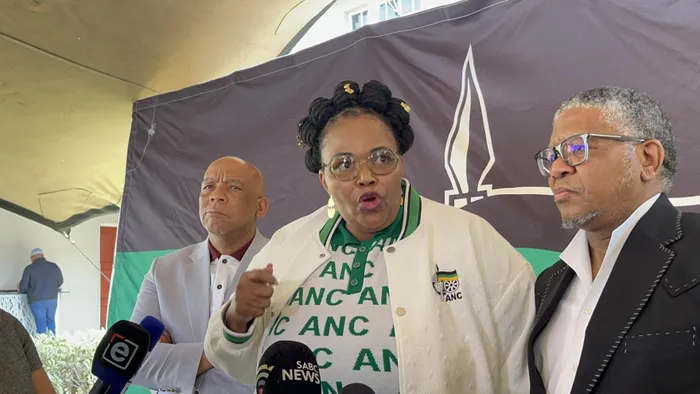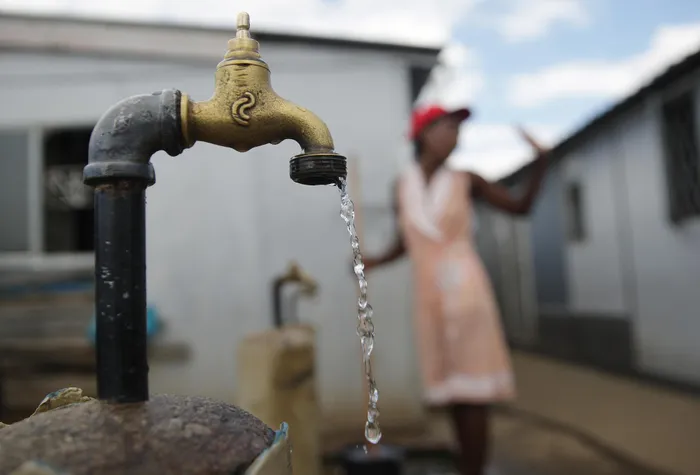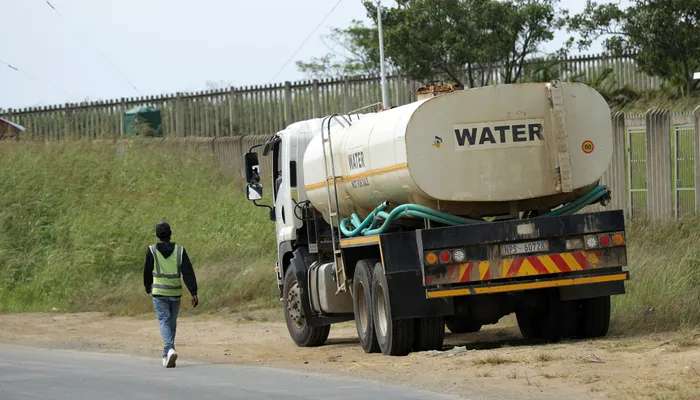Minister Majodina admits millions paid for incomplete water projects, blames water tanker mafia

Water and Sanitation Minister, Pemmy Majodina, has raised alarm about “water mafias” in the North West who extort contractors and force projects to halt.
Image: Kamogelo Moichela / IOL Politics
Water and Sanitation Minister, Pemmy Majodina, has confirmed that millions in taxpayer funds have been paid to contractors for water infrastructure projects that remain incomplete - leaving communities without access to clean and reliable water.
Speaking to the media on the sidelines of the ANC’s special National Executive Committee (NEC) meeting in Boksburg on Saturday, Majodina acknowledged widespread project failures and mismanagement at municipal levels, where many water projects were contracted.
“There are projects that are incomplete… we have intervened and reclaimed those funds,” she said. “We are now sending implementing agents to complete these infrastructure systems.”

Despite water shortages, communities remain hopeful as steps are being taken to alleviate the severity of the problem.
Image: File
In an example, she cited a water treatment plant originally budgeted at R13 million, which now requires R24 million to complete due to delays and cost escalations.
South Africa is currently facing one of its most severe water crises in decades.
Water cuts and shortages have become a daily reality for millions of residents — from Johannesburg and Tshwane to rural parts of the Eastern Cape, North West, and KwaZulu-Natal.
Years of underinvestment, failing infrastructure, poor governance, and widespread corruption have left much of the country vulnerable to water insecurity.

KwaZulu-Natal’s uMgungundlovu District Municipality management said they were investigating allegations that water tanker drivers were selling water to the community.
Image: Independent Newspapers Archives
Despite promises by President Cyril Ramaphosa and local authorities to prioritise water access, implementation has lagged.
“Municipalities are unable to fill reservoirs due to leaks and poor maintenance,” Majodina said, adding that “small reservoirs and high demand in Gauteng metros are making matters worse.”
Johannesburg residents recently endured multi-day outages without warning or water tankers, sparking fresh outrage.
Meanwhile, water protests are erupting across the country.
Majodina also raised alarm about “water mafias” in the North West who extort contractors and force projects to halt.
“We are working with SAPS to address this…These criminal elements are sabotaging essential water delivery,” she said.
In response, the department is now investing in groundwater solutions, drilling boreholes in water-stressed regions to provide emergency relief.
Majodina added that the department has launched a national maintenance programme for major water pipelines supplying Gauteng — including Johannesburg, Ekurhuleni, and Tshwane — to stabilise the bulk water system.
However, she acknowledged a key failure: a lack of communication from municipalities during outages and repairs.
“When maintenance is done, people aren’t informed. That’s part of the crisis,” she admitted.
Despite interventions, many South Africans feel let down by years of broken promises.
kamogelo.moichela@iol.co.za
IOL Politics